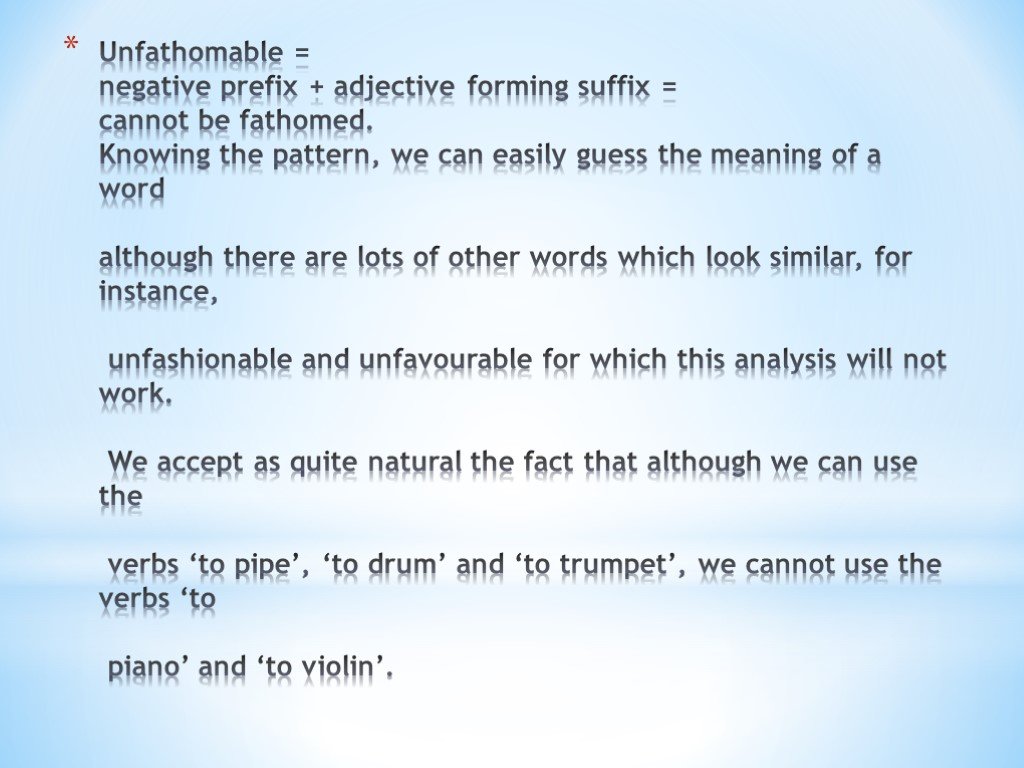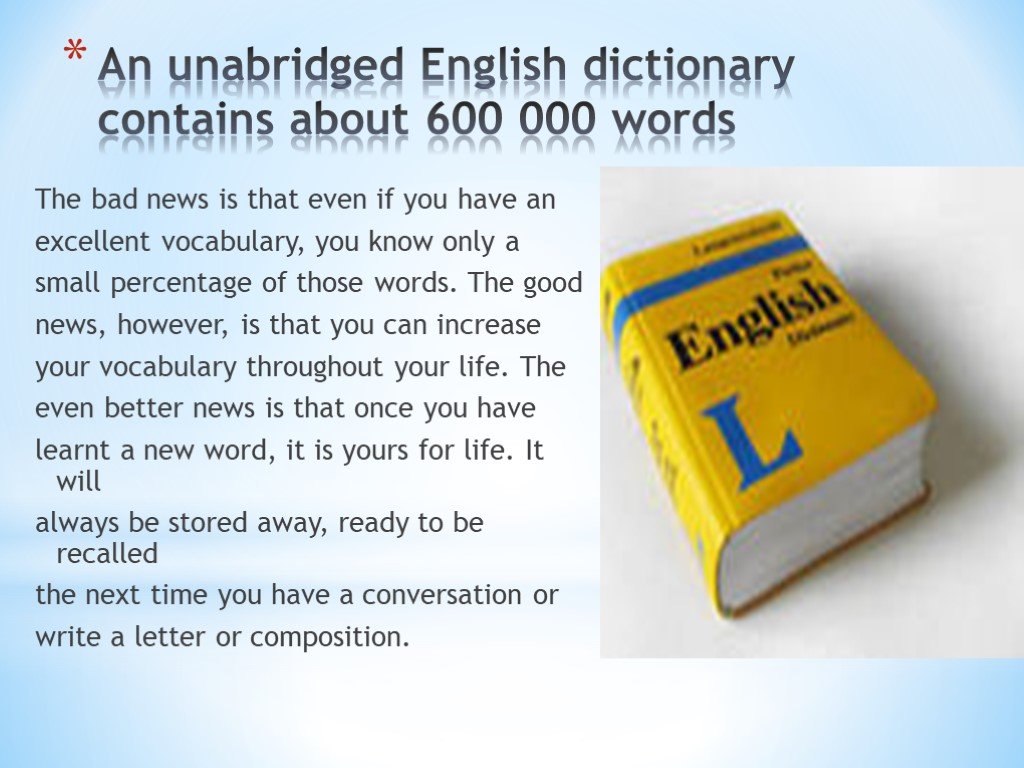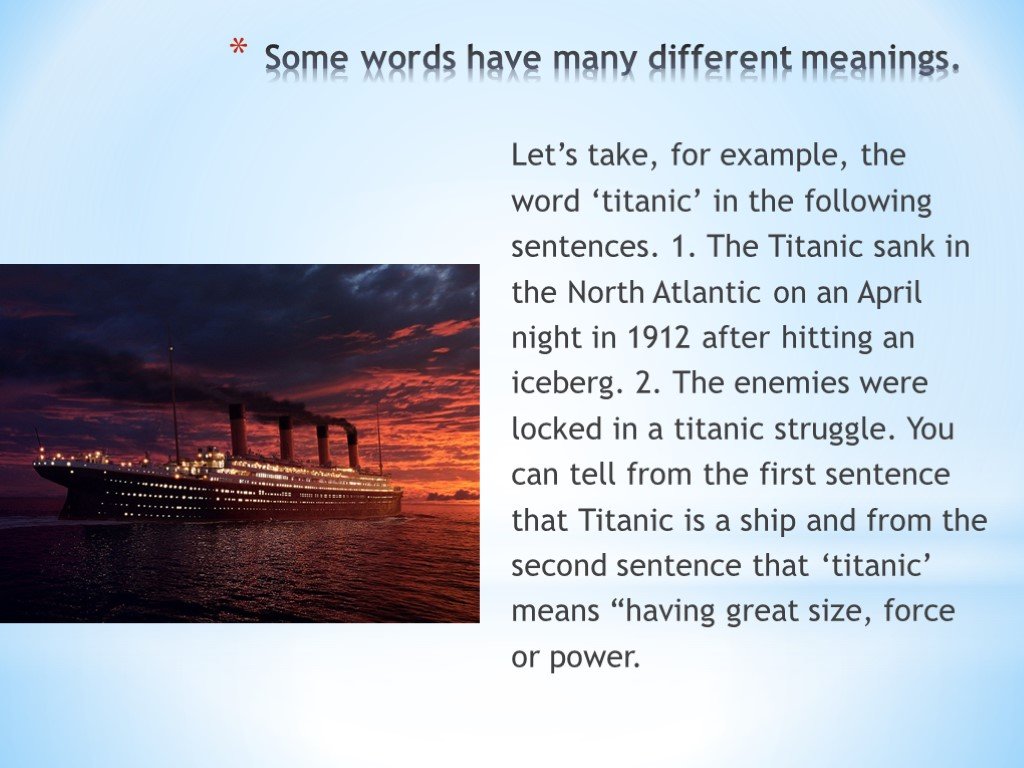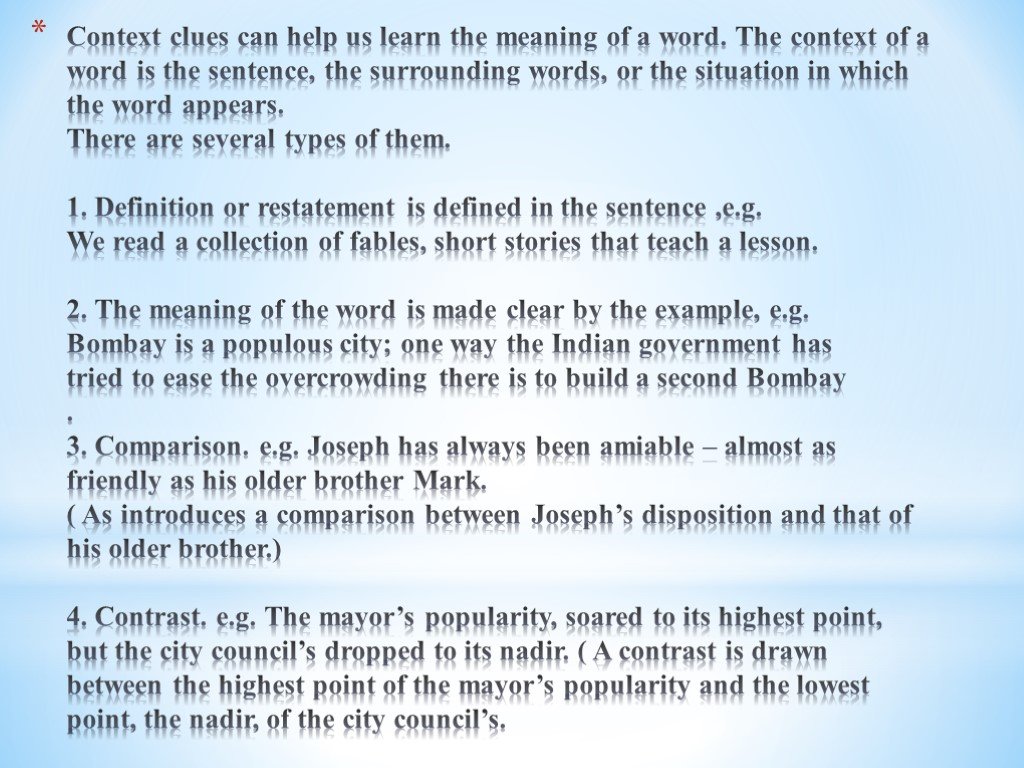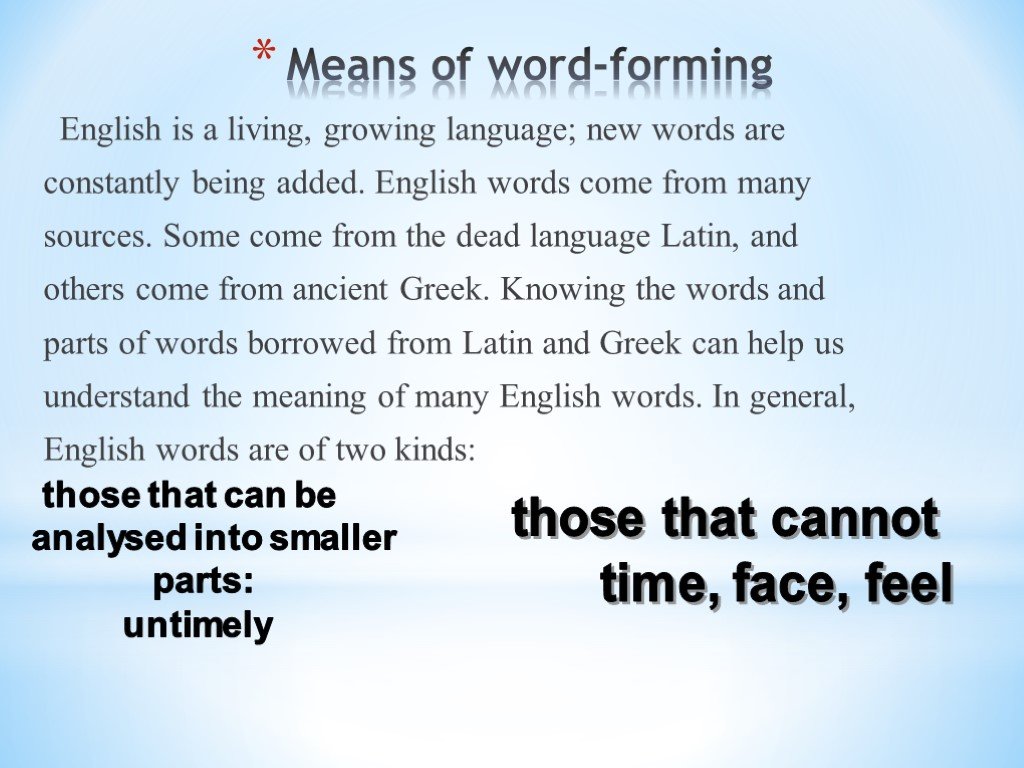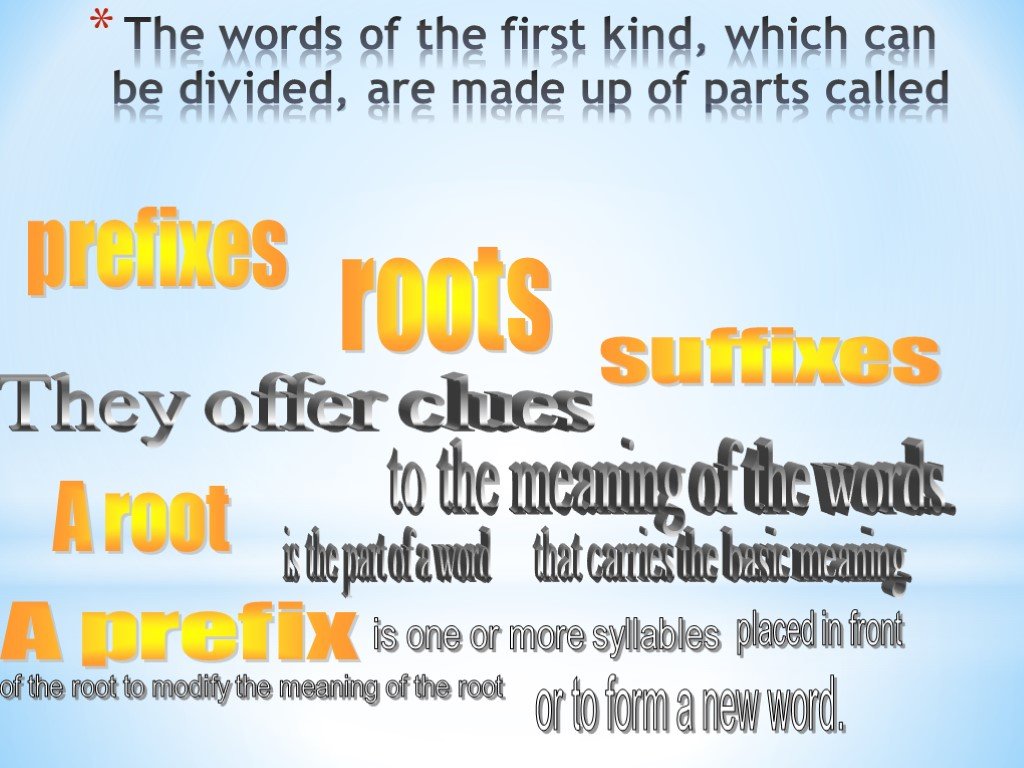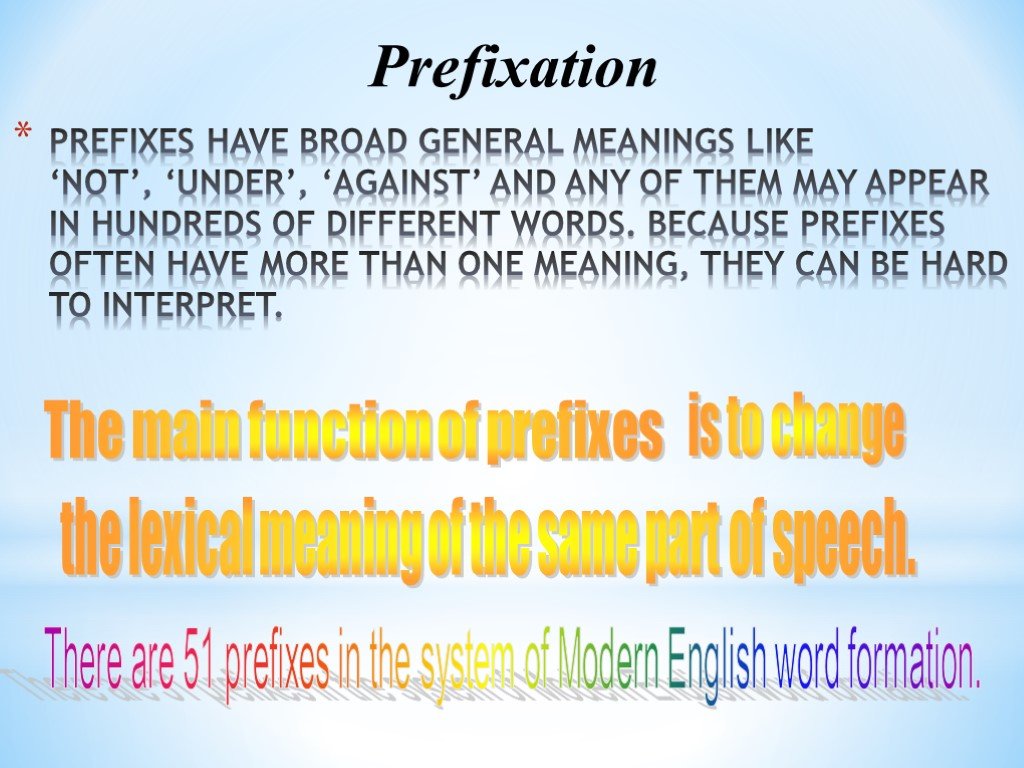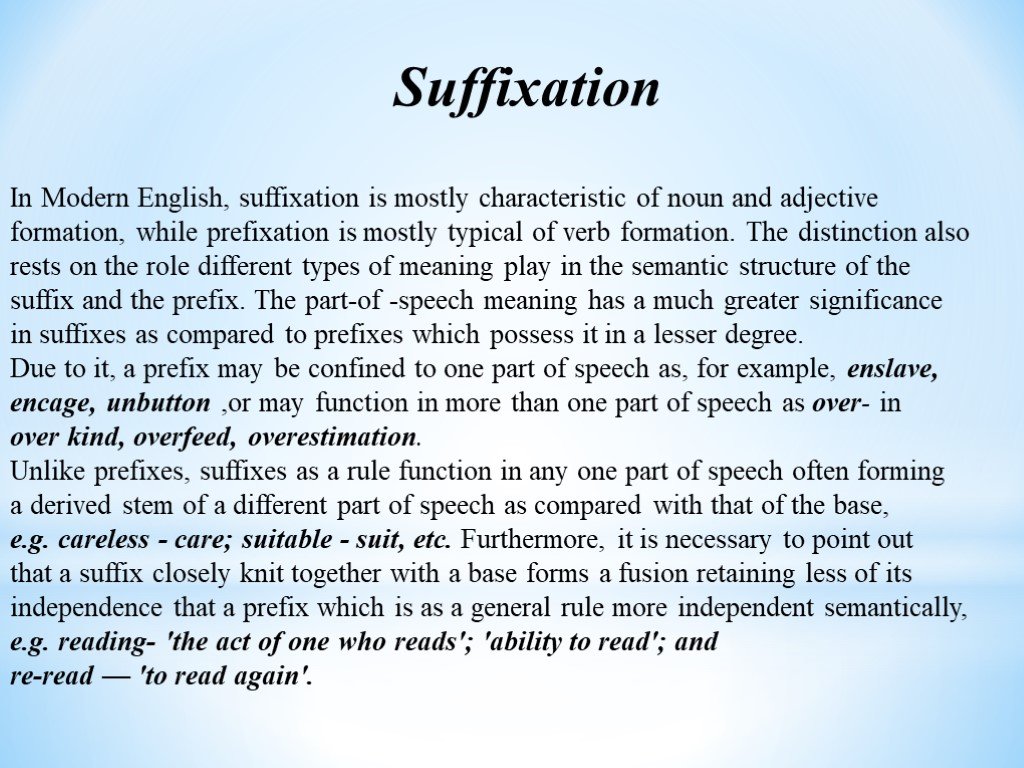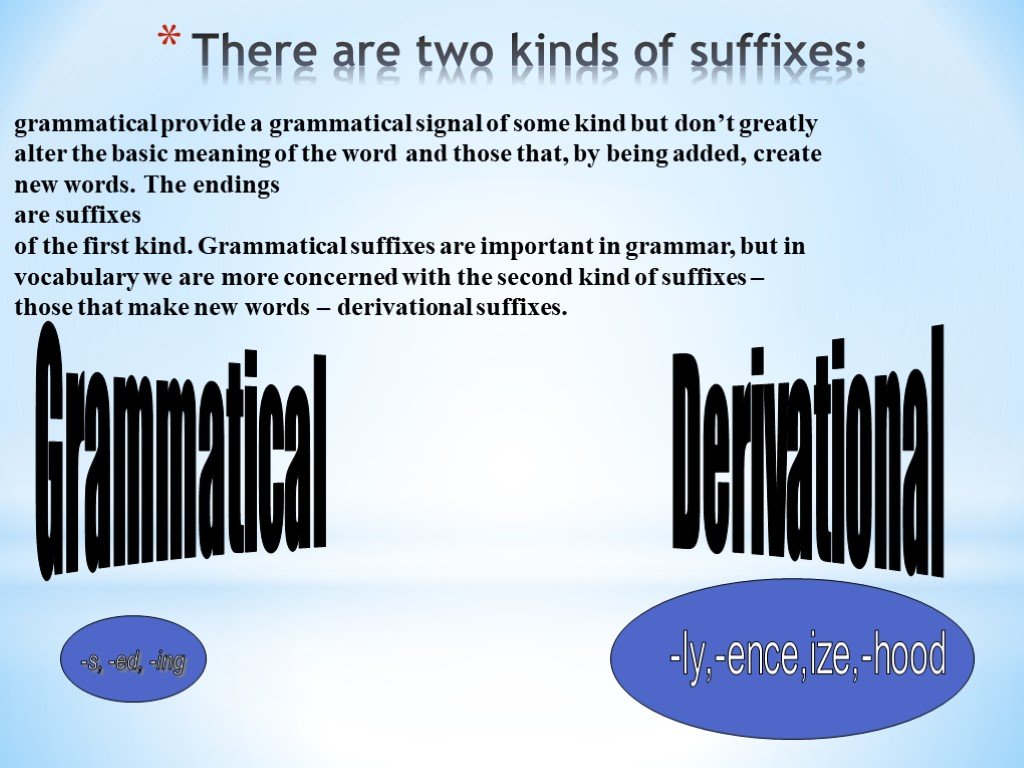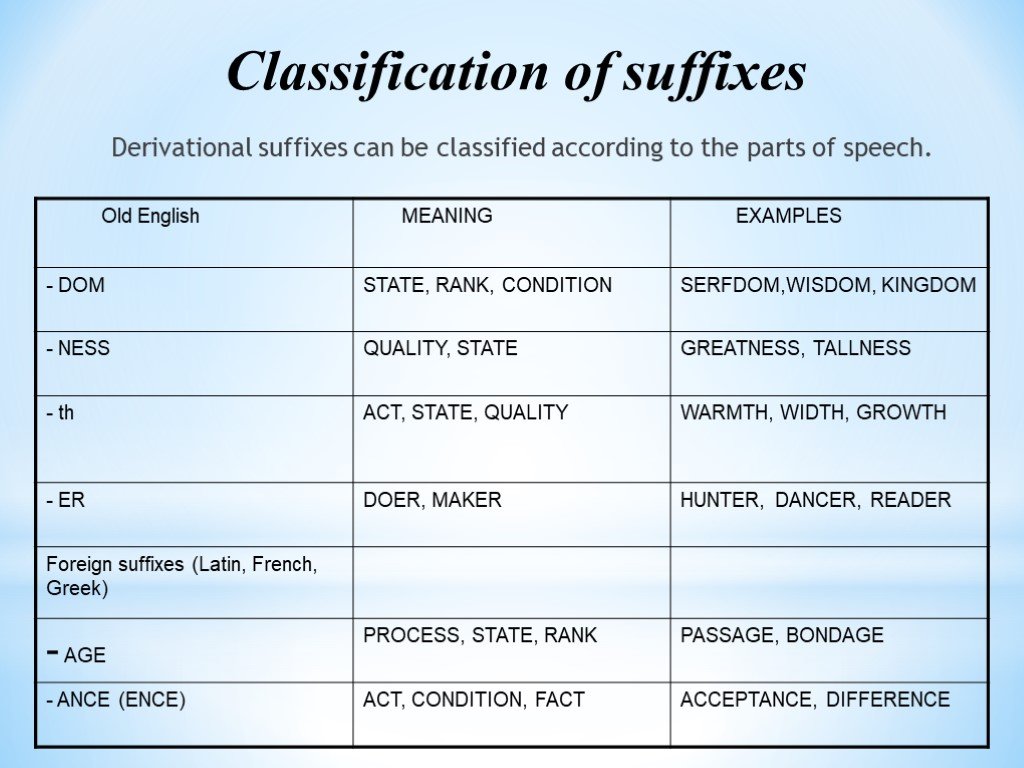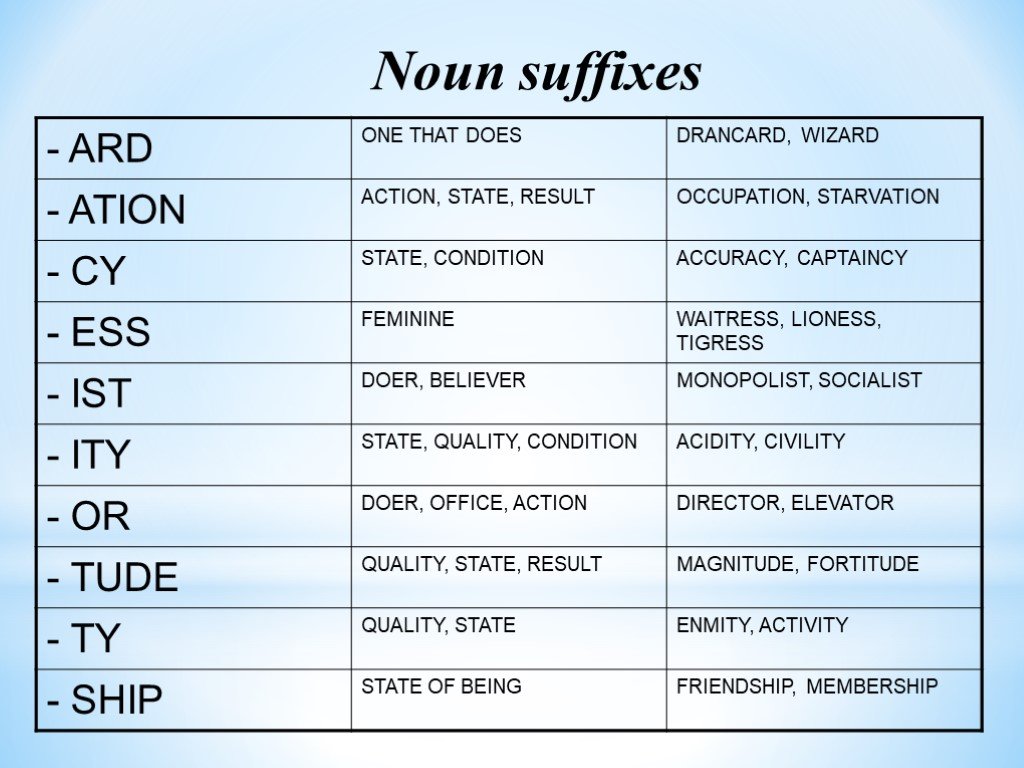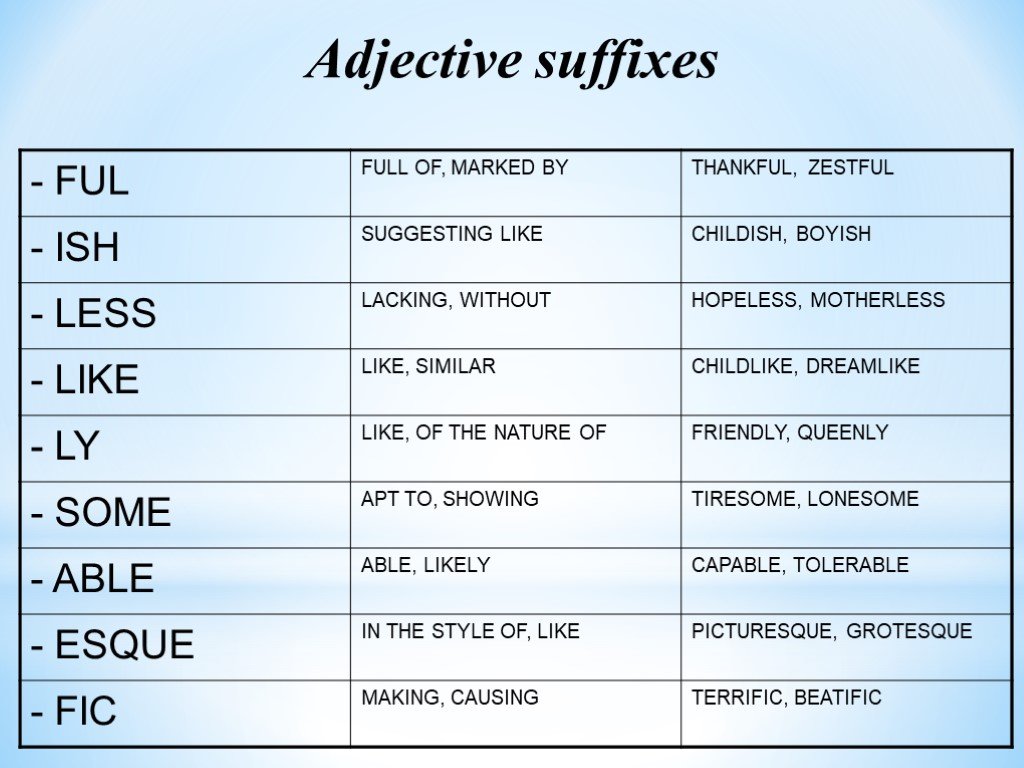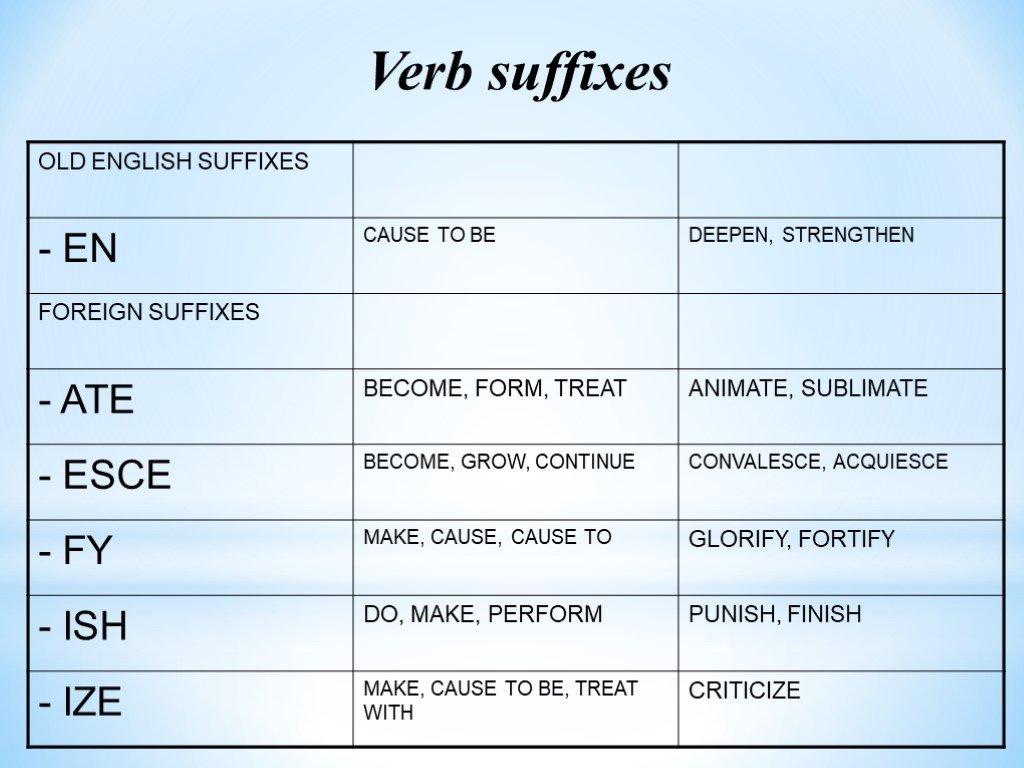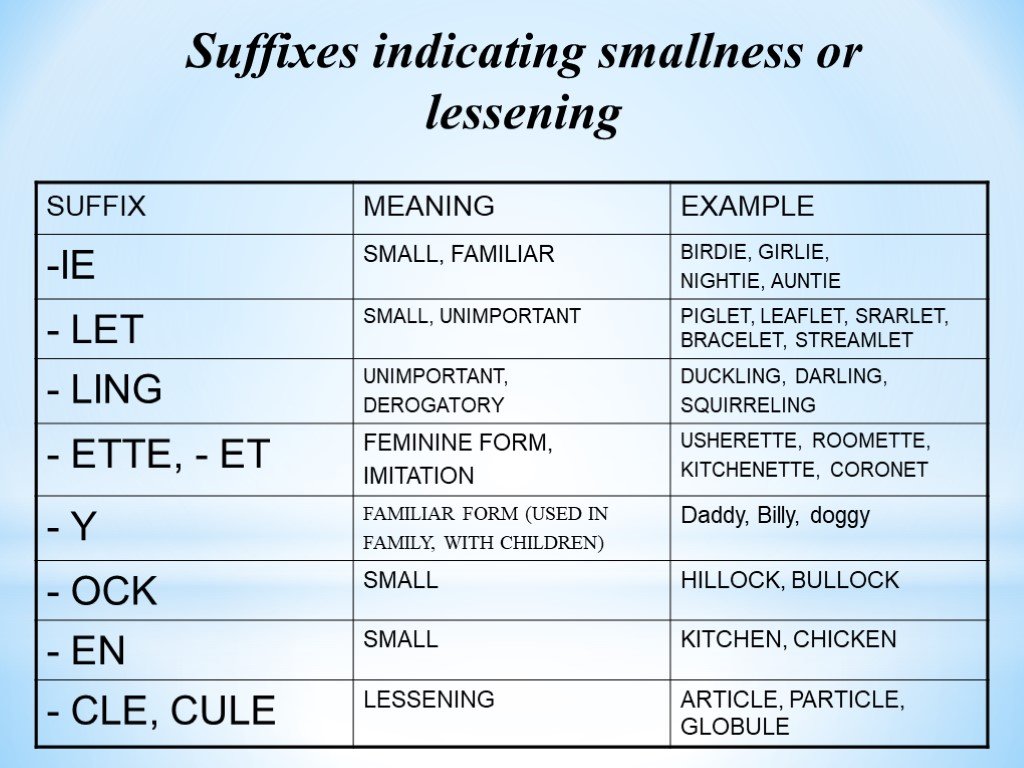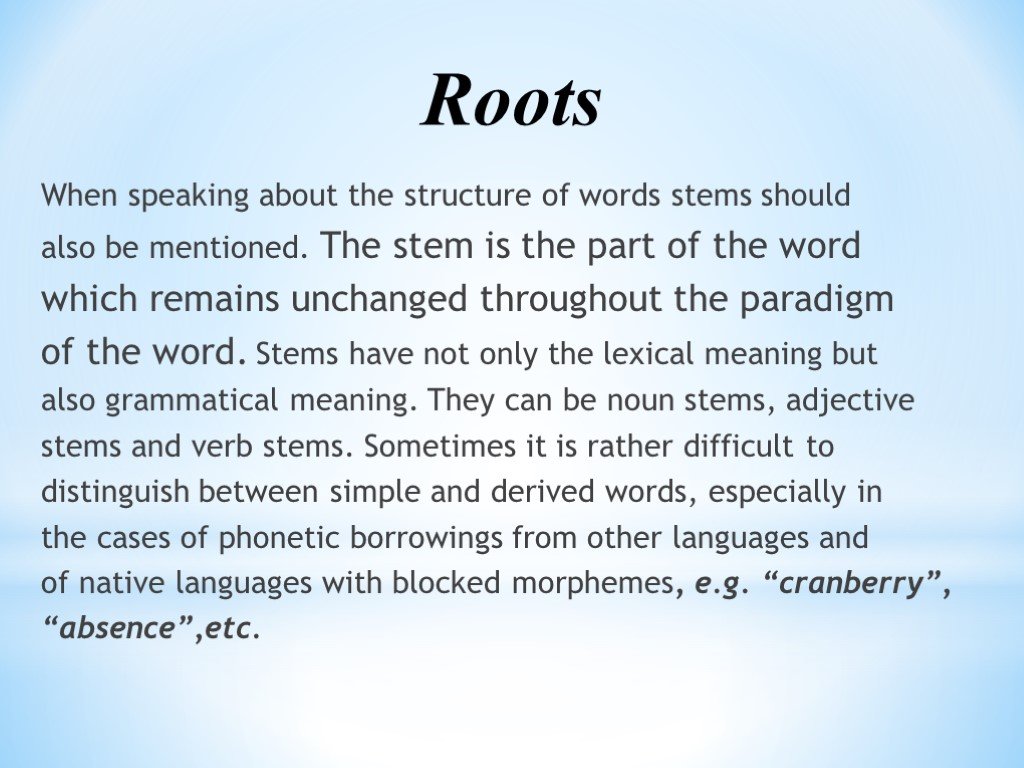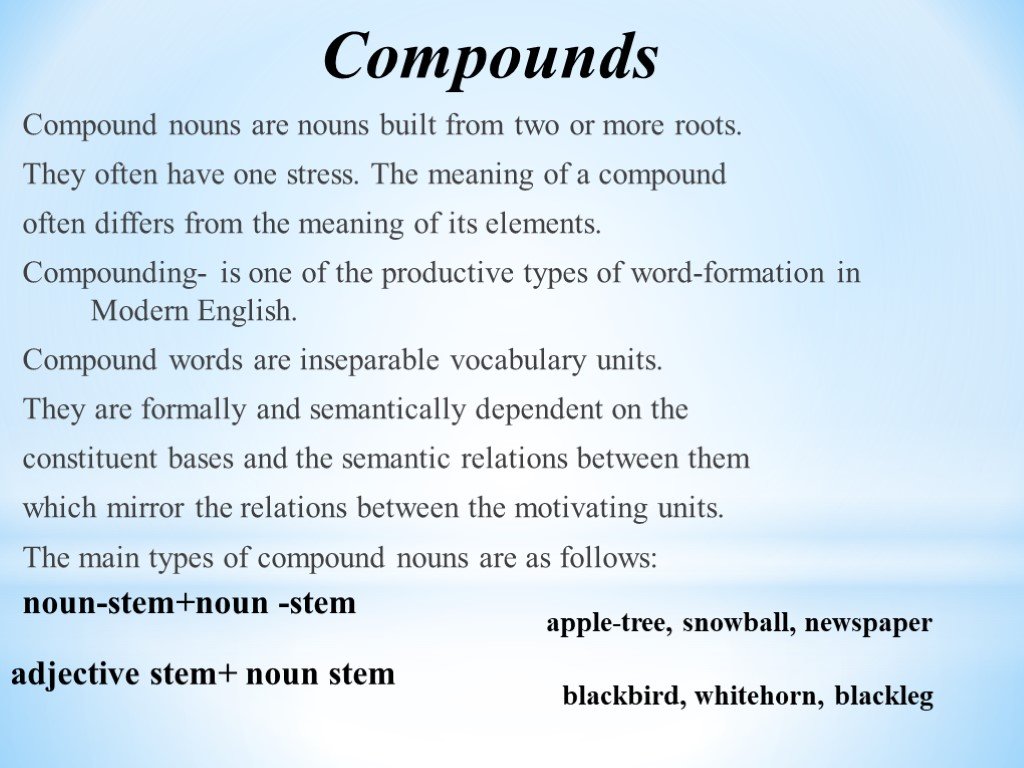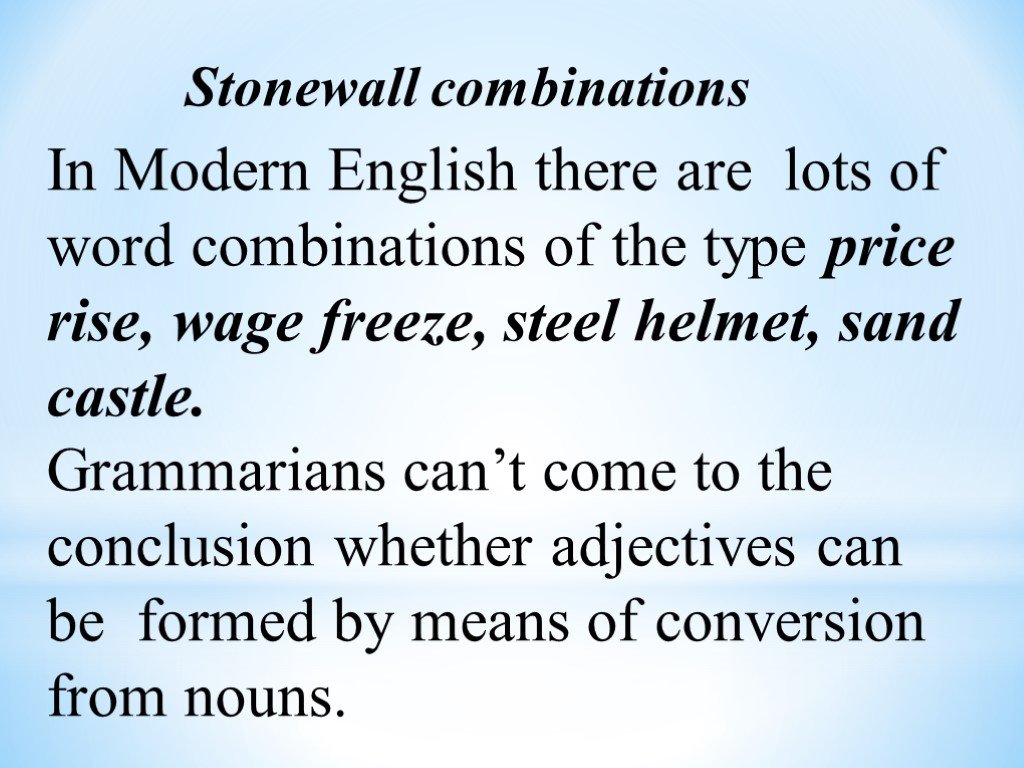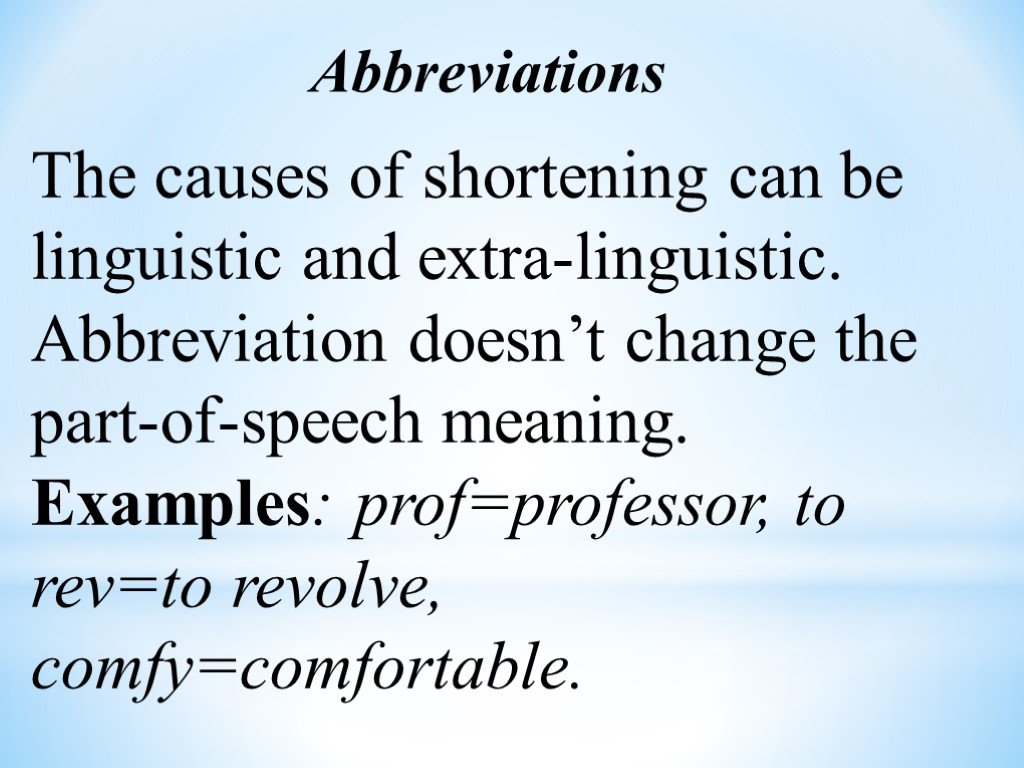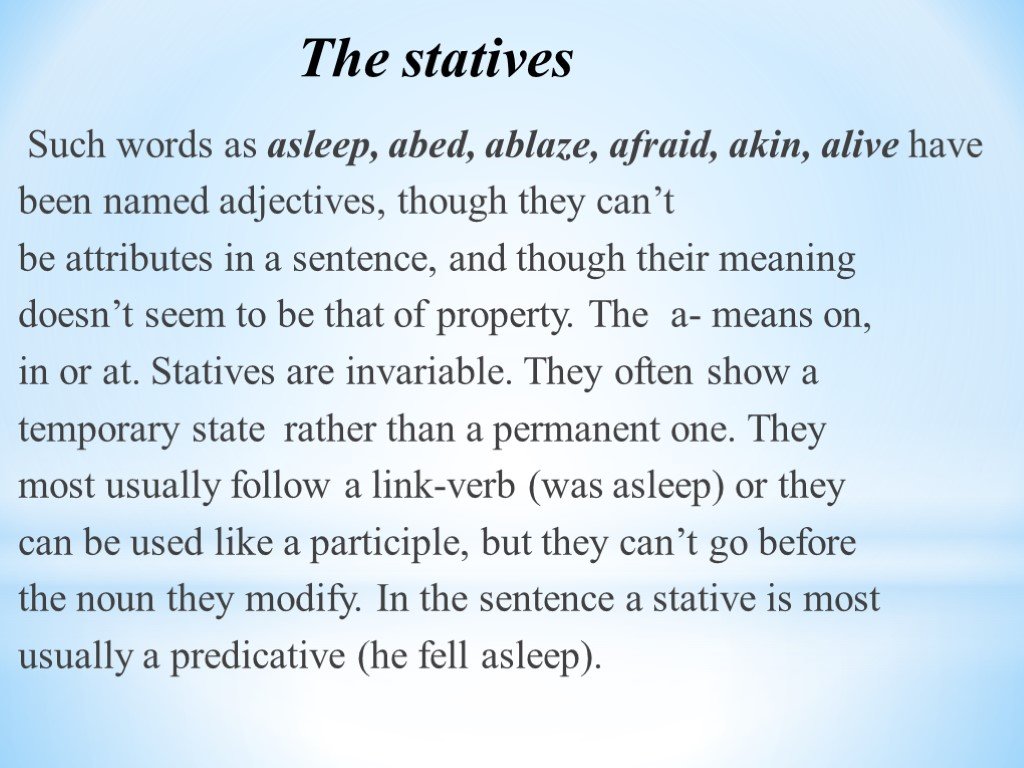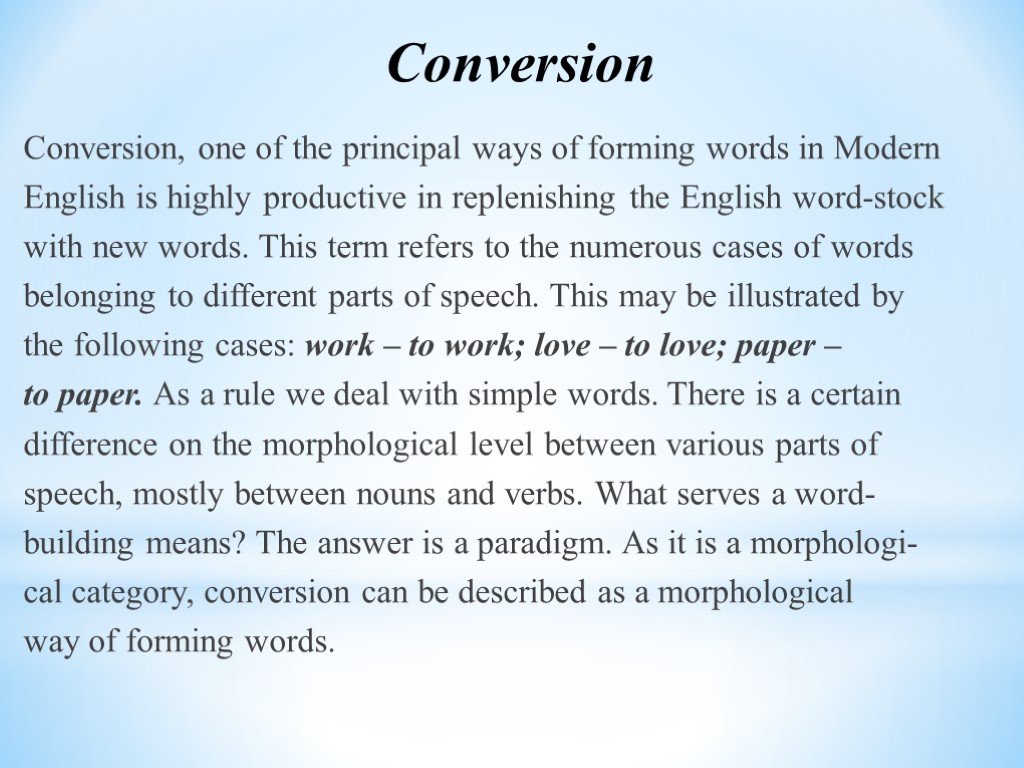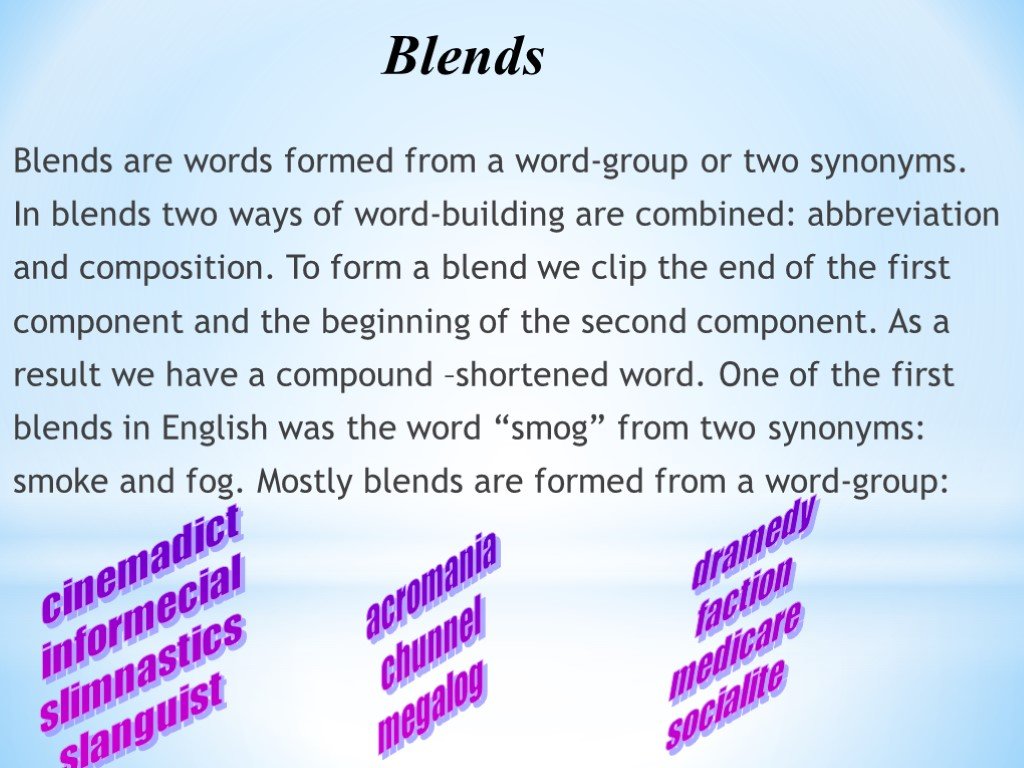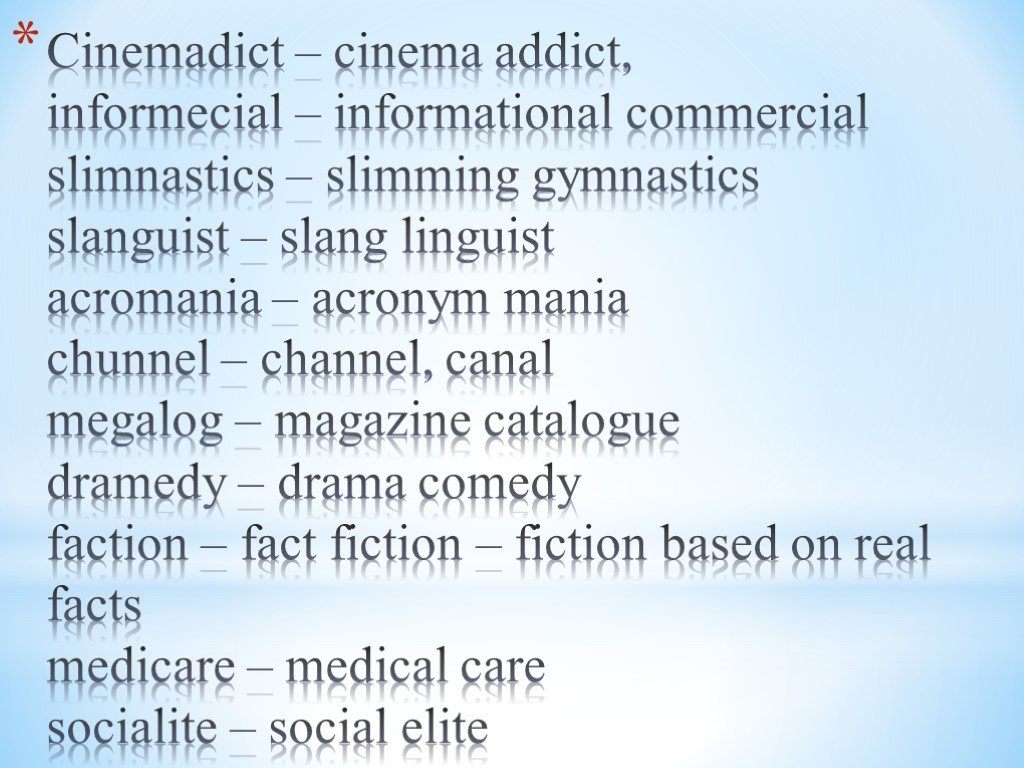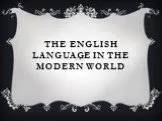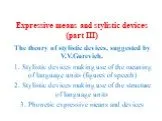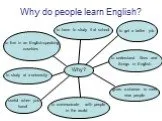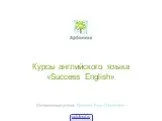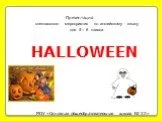Презентация "Modern English Word Formation" – проект, доклад
Презентацию на тему "Modern English Word Formation" можно скачать абсолютно бесплатно на нашем сайте. Предмет проекта: Иностранный язык. Красочные слайды и иллюстрации помогут вам заинтересовать своих одноклассников или аудиторию. Для просмотра содержимого воспользуйтесь плеером, или если вы хотите скачать доклад - нажмите на соответствующий текст под плеером. Презентация содержит 26 слайд(ов).
Слайды презентации
Список похожих презентаций
Analysis of the formation of neologisms in modern English in the works of E.Smith and R.Haeinlein
Ways of neologisms formation Lexico-grammatical Phonological Semantic change Borrowings. Lexico-grammatical grouping Composition Affixation Conversion ...English words
Translate into Russian. 1) I'm having a good time 2) Have a great time 3) Go for a run 4) Go for a picnic 5) Go sightseeing 6) Go skiing 7) Go and ...The english language in the modern world
culture. With English, you can always communicate with business partners to participate in international conferences, read international newspapers ...English Crossword Puzzles Английские кроссворды
English Crossword Puzzles Английские кроссворды. Васильева Р. М., учитель английского языка МОУ Алтанская СОШ с. Алтан Амгинского улуса. CONTENTS ...Information in the modern world
Mass media. Sources of Information. Press in Britain. Press in britain. Problem: Is it real to find certain information in british press? What should ...word formation
1. Stylistic devices based on the meaning of language units. Metaphor Metonymy Zeugma Pun Oxymoron Hyperbole Litotes Epithet Periphrasis Personification, ...Брейн-ринг "We love English"
Contest 1. Team Presentation The first contest is team presentation. Your task is: -choose a leader -present the name of your team -present the emblem ...Why do people learn English
Teenage years. school first love bad habits exams subcultures dating fun free time life style personal problems violence duties friends hobbies. What ...Topic Modern inventions
Technological progress has merely provided us with two more efficient means for going backwards. (Aldous Huxley, English author) Men are only as good ...Success English
Для кого курсы? Вы всегда можете выбрать: Кто проводит? Курсы «Success English». Для тех, кто экономит свое время и деньги, кто заботится о комфорте ...PRESENTATION IN ENGLISH TORNADO
A tornado is a violently rotating column of air that is in contact with both the surface of the earth and a cumulonimbus cloud or, in rare cases, ...Phrasal verbs in English
Make up. Think of over. Put on off in. Turn out up. Get through Pass Call Break Finish Cope. Go into. Интернет-ресурсы: Рамка нежная http://img-fotki.yandex.ru/get/6520/16969765.99/0_6a837_8225efc1_L.png ...My Favourite English writer
Charlotte Brontё. Charlotte Brontё an English novelist of the 19th century, was a contemporary of Dickens,Thackeray and Geskell. Biography. She was ...English for you
ENGLISH FOR YOU Form 6. Может ли компьютер заменить учителя? Твои школьные учебники. . Что ты научишься делать и узнаешь. Выучишь много новых слов ...English Cuisine
The features of English cuisine. English cuisine includes, traditions, styles and recipes associated with England; It has distinctive attributes of ...English Contest «Having a good time with your family»
Task 1 Name members of the family. She is the daughter of my mother. She is my ... She is the sister of my mother. She is my ... . He is the son of ...English
Лобанова Наталья Михайловна и учащиеся 7а класса приглашают Вас на урок английского языка! Why study English? Language is the most important mean ...Easy English
Эксперимент по проблеме:. «Формирование элементарных навыков общения на иностранном языке детей в системе «Детский сад - начальная школа». разработана ...Jane Austen“First lady” of English literature
Jane Austen - (16 December 1775 – 18 July 1817) was an English novelist whose works of romantic fiction earned her a place as one of the most widely ...English Holidays
autumn holiday Осенние каникулы. autumn holiday. The most important English autumn holiday – Halloween Самым главным в английских осенних каникулах ...Конспекты
Learn English
МБОУ «Тетюшская СОШ№1 им. Ханжина П.С.». . Игра – викторина:. Learn. . English. . . Учитель английского языка. Самойлова ...Are you an Expert in English?
Game for. the. 5 forms: “Are you an Expert in English?”. Good morning dear guests. You are welcome to our game: “Are you an expert in English”. ...IMPROVE YOUR ENGLISH
МЕРОПРИЯТИЕ ПО АНГЛИЙСКОМУ ЯЗЫКУ В. . «IMPROVE YOUR ENGLISH». Форма проведения. : игра-соревнование. . Цели игры. :. 1. Развивать ...School subjects in Russian and English school
МБОУ «Гимназия №93». Урок по теме:. «School subjects. in Russian and English school ». 5 класс. . Выполнила: ...We can speak English
Никитина Светлана Алексеевна. Учитель английского языка. ГБОУ СОШ 1034. Класс:. 2. . УМК «Английский с удовольствием» М.З. Биболетова. Тема ...MODERN BRITISH MUSIC
ТЕМАТИЧЕСКАЯ ДИСКОТЕКА «. MODERN. . BRITISH. . MUSIC. ». Предлагаю провести тематическую дискотеку, посвящённую современной английской музыке, ...New Millennium English
Министерство образования и науки Удмуртской Республики. Управление образования Администрации г. Ижевска. Муниципальное бюджетное общеобразовательное ...English is fun!
Муниципальное бюджетное общеобразовательное учреждение средняя общеобразовательная школа № 17 станицы Выселки муниципального образования Выселковский ...English is the Latin of the 21st century (урок по английскому языку) УМК “Happy English.ru” К.И. Кауфман, М.Ю. Кауфман
Муниципальное бюджетное общеобразовательное учреждение. . «средняя школа № 50» г. Калуга. English is the Latin of the 21. st. century. ...English around us
. School. №. 204 by ALTYNSARIN. . Grade: 9 “A,B,G”. Date: 22.11.2013. Prepared by: Urazova Gulbakyt. ...Советы как сделать хороший доклад презентации или проекта
- Постарайтесь вовлечь аудиторию в рассказ, настройте взаимодействие с аудиторией с помощью наводящих вопросов, игровой части, не бойтесь пошутить и искренне улыбнуться (где это уместно).
- Старайтесь объяснять слайд своими словами, добавлять дополнительные интересные факты, не нужно просто читать информацию со слайдов, ее аудитория может прочитать и сама.
- Не нужно перегружать слайды Вашего проекта текстовыми блоками, больше иллюстраций и минимум текста позволят лучше донести информацию и привлечь внимание. На слайде должна быть только ключевая информация, остальное лучше рассказать слушателям устно.
- Текст должен быть хорошо читаемым, иначе аудитория не сможет увидеть подаваемую информацию, будет сильно отвлекаться от рассказа, пытаясь хоть что-то разобрать, или вовсе утратит весь интерес. Для этого нужно правильно подобрать шрифт, учитывая, где и как будет происходить трансляция презентации, а также правильно подобрать сочетание фона и текста.
- Важно провести репетицию Вашего доклада, продумать, как Вы поздороваетесь с аудиторией, что скажете первым, как закончите презентацию. Все приходит с опытом.
- Правильно подберите наряд, т.к. одежда докладчика также играет большую роль в восприятии его выступления.
- Старайтесь говорить уверенно, плавно и связно.
- Старайтесь получить удовольствие от выступления, тогда Вы сможете быть более непринужденным и будете меньше волноваться.
Информация о презентации
Дата добавления:27 сентября 2018
Категория:Иностранный язык
Содержит:26 слайд(ов)
Поделись с друзьями:
Скачать презентацию





